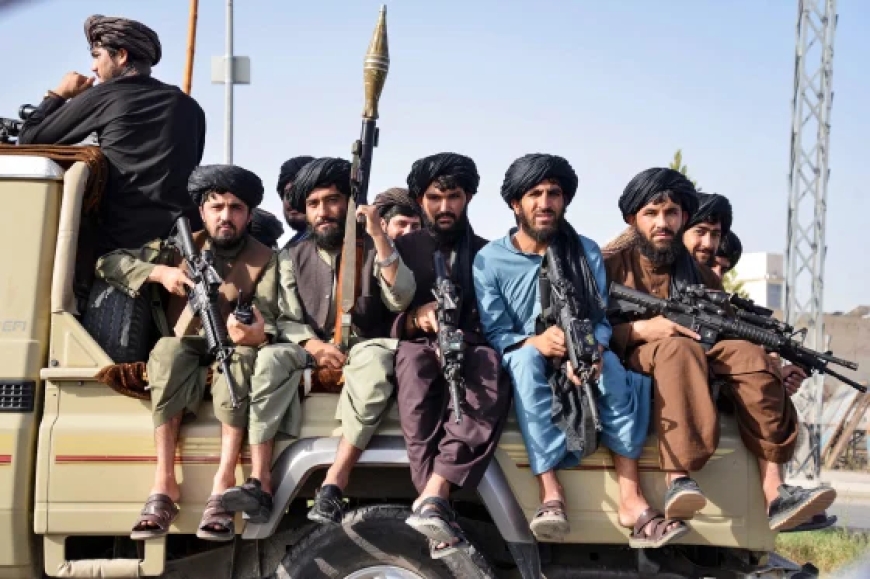Three Years On: The Taliban's Quest for International Acceptance

By: M. Sharifi
Following the withdrawal of American forces and their allies, the Taliban, who refer to themselves as the "Islamic Emirate of Afghanistan," swiftly took control of Kabul on August 15, 2021. Once in power, the Taliban quickly consolidated their position in the capital and announced the members of their interim government.
However, the international community has largely withheld official recognition of this regime, engaging with it only as necessary for pragmatic interactions and diplomatic relations. As Afghanistan nears the third anniversary of Taliban rule, this article seeks to explore the key developments within the country during this period.
The Quest for International Legitimacy
The foreign policy of the Taliban is heavily driven by their quest for international legitimacy and the imperative for economic engagement with other nations. Unlike their previous period of governance, this iteration of the Taliban is keenly aware of the necessity to establish and maintain legitimacy as the foundation of their sovereignty. Despite these efforts, no government has yet accorded formal recognition to the Taliban's rule. Consequently, the Taliban has been engaged in ongoing negotiations with major powers such as the United States, Russia, Iran, and other regional and international entities in a bid to secure diplomatic recognition.
Domestically, the Taliban has sought to project a peaceful posture while engaging in active diplomacy at both the regional and international levels. This approach marks a departure from their earlier, more insular policies, reflecting a strategic shift towards seeking broader acceptance on the global stage.
Position on the Palestinian Issue
In a recent diplomatic engagement, Mohammad Abdul Kabir, the Political Deputy Prime Minister of the Taliban government, met with Ahmad Vahidi, Iran’s Minister of the Interior. During this meeting, Kabir underscored the significance of the Palestinian issue as a central concern for the Islamic world. He expressed solidarity with the oppressed people of Gaza and asserted that, had Afghanistan shared a border with Israel, the Taliban would have waged war against the Zionist regime to defend the Palestinians. Furthermore, Taliban officials condemned the assassination of Ismail Haniyeh, reaffirming their support for the Palestinian cause and expressing sympathy for the Palestinian people.
Internal cohesion and government stability
Amidst their external diplomatic efforts, the Taliban leadership has placed a strong emphasis on internal cohesion as a means of reinforcing their governance. Amir Khan Muttaqi, the Taliban’s Foreign Minister, urged government officials and military personnel to avoid actions that might provoke public animosity, stressing that the Islamic Emirate's forces should work to win the hearts of the people. Similarly, Hibatullah Akhundzada, the Taliban's supreme leader, in a meeting with the governor and officials of Ghor province, advocated for the prevention of internal conflicts as a strategy to strengthen the administration. According to Taliban spokesperson Zabihullah Mujahid, Akhundzada emphasized the importance of bolstering the Islamic system, enforcing Sharia law, preserving the achievements of Jihad, and promoting Islamic education among the youth. He also called for unity, obedience to leadership, and service to the Muslim community.
Economic Initiatives and Challenges
The Taliban has embarked on significant efforts to attract foreign investment, notably by forming a consortium with Iran, Russia, and Pakistan aimed at drawing capital into sectors such as energy, infrastructure, and mining. Additionally, an inter-ministerial committee has been established to streamline the investment process. However, despite these initiatives, the Taliban's economic policies have met with limited success.
While the Taliban has been relatively more effective than the previous government in providing security—a crucial factor in attracting international investment—there remains a pervasive atmosphere of mistrust between potential investors and the Taliban leadership. This distrust is compounded by the presence of a cabinet largely composed of individuals lacking expertise and harboring extremist views, which further complicates efforts to secure economic growth and stability.
The Dichotomy of Ideology and Pragmatism
The Taliban’s ongoing struggle to balance the pursuit of international support with the preservation of their internal ideology reveals the complexities of their governance. This delicate balancing act appears to have faltered, as evidenced by the lack of international recognition, failed diplomatic engagements with major powers, insufficient regional backing, and the persistent challenges in achieving economic and social stability. These issues highlight the formidable obstacles the Taliban faces as they approach the third anniversary of their rule in Afghanistan, underscoring the shortcomings of their policies in fulfilling the needs of the nation and gaining acceptance on the world stage.













































